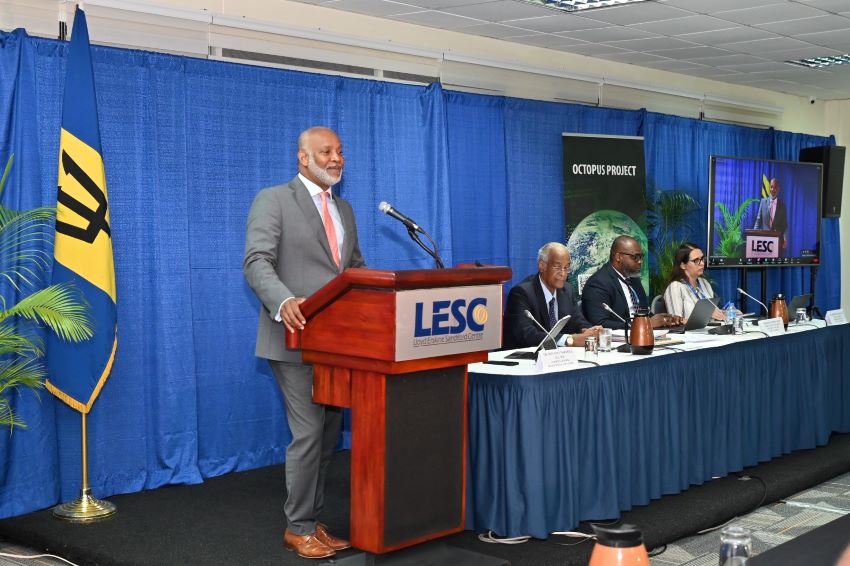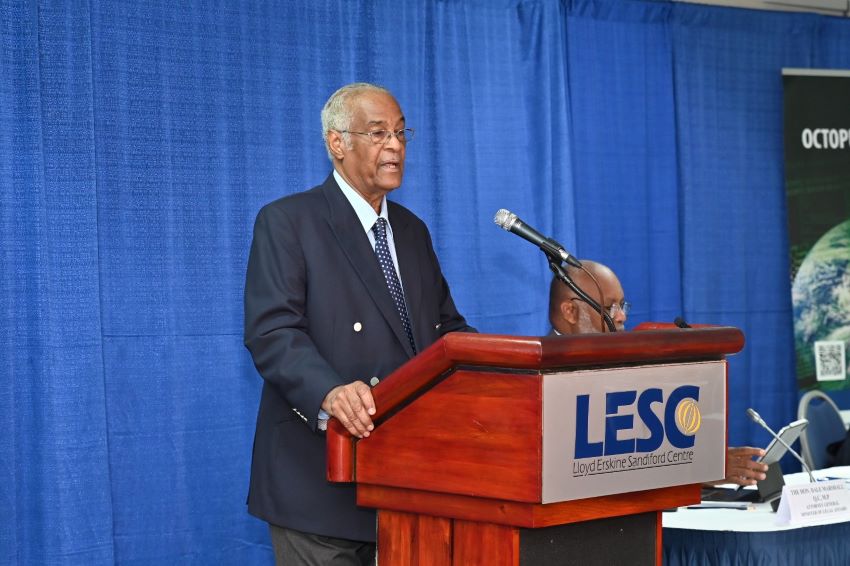
Government is committed to ensuring that the new cybercrime legislation will be taken to Parliament.
Attorney General Dale Marshall expressed this commitment today as he delivered remarks at the opening of a series of workshops for stakeholders on the national cybercrime legislation, at the Lloyd Erskine Sandiford Centre.
Mr. Marshall told his audience: “I can say to you that the Government is committed to seeing this legislation brought swiftly to Parliament, and we are also committed to ratifying the Budapest Convention.”
Noting that Government enacted a Computer Misuse Act in 2006, the Attorney General said it was adequate to deal with the challenges at that time.
“Of course, our facility with computer technology, the prevalence of social media, and I suppose the increasing sophistication of the criminal element forced us to relook the legislative framework that we had in place, and to see if it was adequate to deal with our current circumstances, and not just in the area of cybercrime.
“In looking at our recent child justice and child protection legislation, we had to consider the impact of the technology on some very serious offences against minors. We know that it is quite common today for individuals to groom children using computer technology, get them engaged in pornographic activity and so on. So in a sense, we are here today because the pervasiveness of criminal activity using computer technology has been viewed in stark light,” he stated.
Mr. Marshall underscored the importance of the consultation with stakeholders over the next three days, saying the discussion is key and will redound to a much better piece of legislation, if there are any defects.
“But certainly it will also mean that when it does get enacted, the various people who have to deal with it will be more than prepared,” the Attorney General proffered.

He thanked Chairman of the Law Reform Commission, Sir David Simmons, for the hard work being done.
In his remarks, Sir David said although information and communication technologies had led to significant social economic development worldwide, cybercrime could have a negative impact on core societal values such as human rights, democracy and the rule of law. He noted that Barbados was well aware of the disruption that was wrought by cybercrime to institutions in the public and private sectors in the last few years.
Sir David continued: “Governments must therefore strengthen legislation and the capacity of relevant authorities to handle electronic evidence and to investigate, prosecute and adjudicate cybercrime. But in addition, international cooperation is absolutely necessary and critical to succeeding in carrying out those functions.”
Countries in this region, he pointed out, have taken steps, in recent years, to equip themselves with legislation to address cybercrime. He said the Budapest Convention on cybercrime has served as a gold standard in respect of legislation for states wishing to adapt their national legislation.
He noted that the Law Reform Commission is of the view that the draft bills on Cybercrime and Mutual Assistance in Criminal Matters are in their final stages of drafting.
“We wish to ensure that any amendments that may originate out of the workshops over the next three days, will be of such a nature as will enable us to make any amendments that will be necessary and consequential before the Attorney General takes the bills to Cabinet and ultimately to Parliament.
“We hope that the bills may reach Parliament by the end of this calendar year. Cybercrime is a very serious international phenomenon and the legislation has to do its best to try and keep up with the modalities of cybercrime,” Sir David stated.
As part of ongoing cooperation, the Octopus Project of the Council of Europe and the CARICOM IMPACS are supporting Barbados in the workshops, aimed at raising awareness of the legislation by law enforcement agencies and criminal justice authorities. Those participating in the sessions include the judiciary and magistracy, Department of Public Prosecutions, The Barbados Police Service and various service providers.
